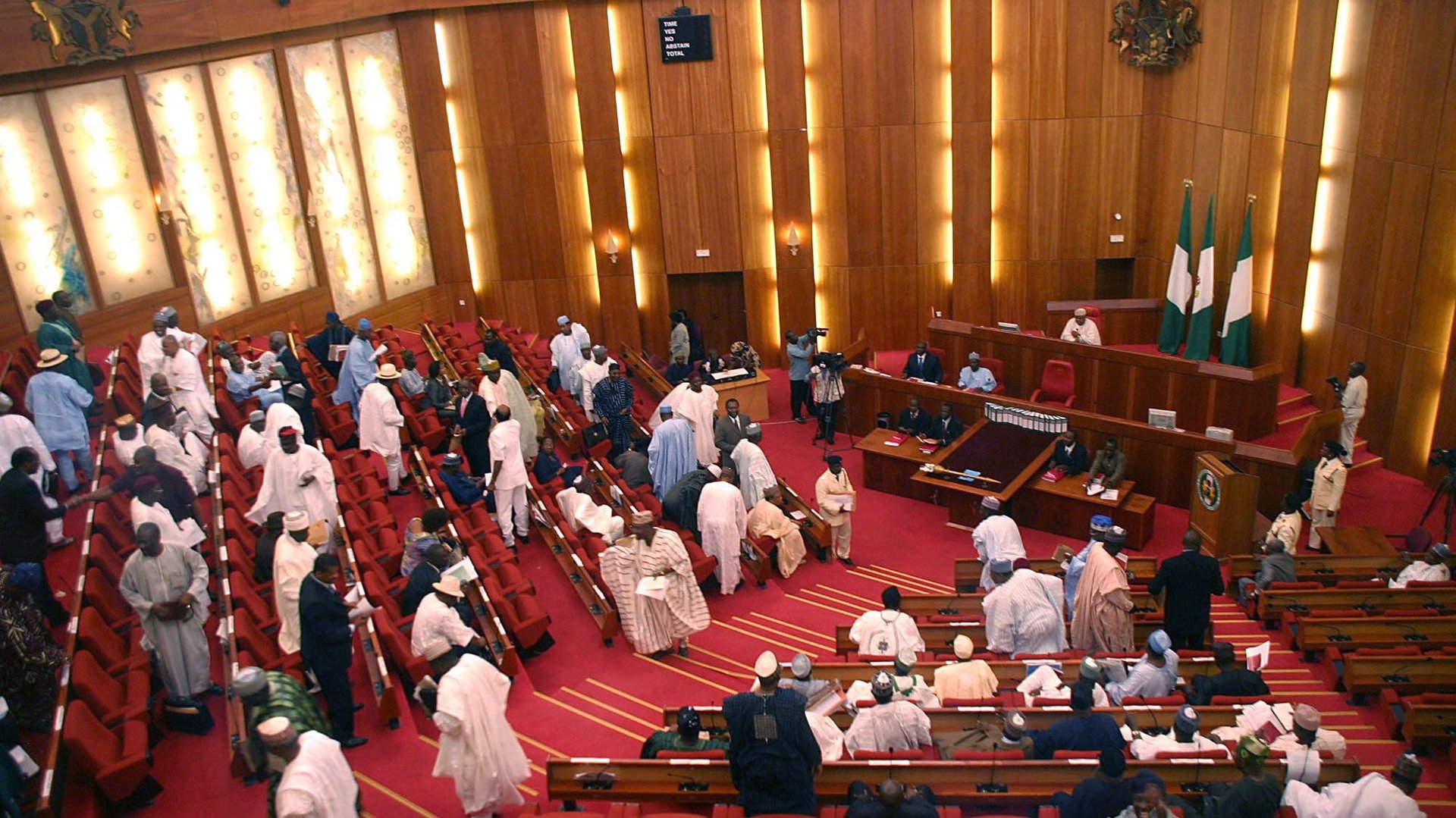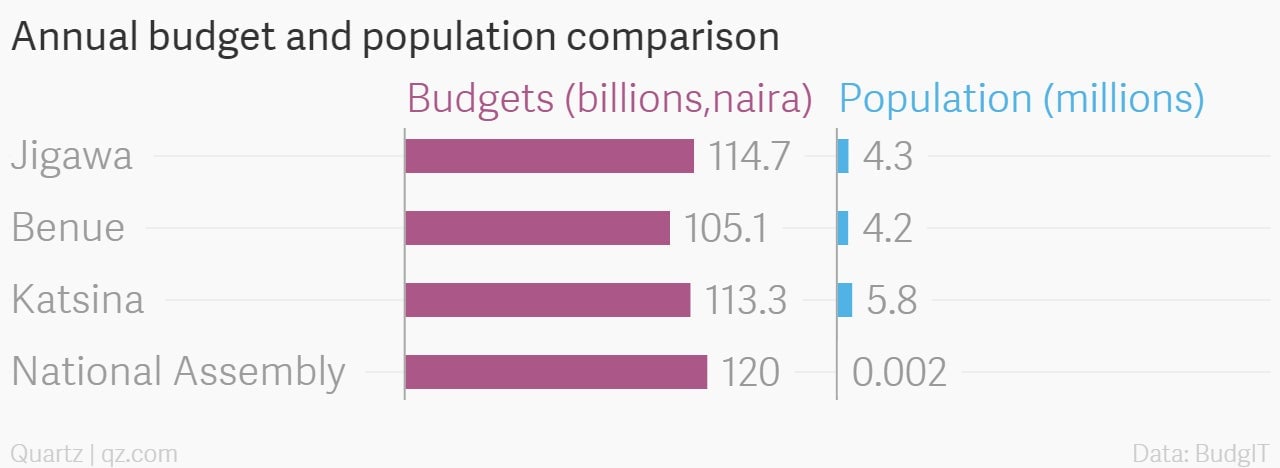Nigeria has some of the world’s highest paid lawmakers and this start-up wants to slash their pay
As president Buhari’s new administration and Nigeria’s 8th national assembly settles into office, a new campaign for transparency, accountability, and possibly a cut, in funds allocated to the National Assembly is picking up steam.


As president Buhari’s new administration and Nigeria’s 8th national assembly settles into office, a new campaign for transparency, accountability, and possibly a cut, in funds allocated to the National Assembly is picking up steam.
The social media campaign tagged #OpenNASS is led by BudgIT– a local start-up focused on making budgetary information accessible to Nigerians.
BudgIT was founded in 2011 at the influential Nigerian technology hub, Co-Creation Hub located in Lagos’ Yaba neigbhourhood. The start-up has grown rapidly and last year bagged $400,000 in funding from Omidyar Network, the impact investment firm started by eBay founder Pierre Omidyar. BudgIT generates revenue from consulting and data analysis for private and public organizations.
Primarily a civic start-up, BudgIT is strong on advocacy as it continues to work to simplify budgetary information for Nigerians in a bid to ensure more transparency in fiscal spending. One of its previous projects was ‘Follow Flood Money’, an initiative to track flood relief funds in Nigeria after devastating floods in 2012.
Nigerian legislators, among the world’s top paid, receive annual salaries of between $150,000 to $190,000 per annum depending on exchange rates. At current exchange rates Nigerian lawmakers, would earn around $160,000 more than British MPs who make around $105,000 according to data from The Economist. In fact, until plunging oil prices started putting pressure on the Nigerian naira earlier this year, the Nigerian lawmakers were the second highest paid lawmakers in the world.
The average legislators’ pay is more than 50 times Nigeria‘s GDP per capita. In a country where millions live on less than two dollars daily and minimum wage is set at $90 a month, the legislator’s bumper pay has been described as outrageous. The campaign for a cut in the National Assembly’s funds as a new government comes in is fitting as President Buhari, who will earn less than the lawmakers, has a reputation for being modest and austere.

The main thrust of the #OpenNASS campaign is for the National Assembly to open its books to allow for an assessment of its finances and possibly advocate for cuts particularly in a period of financial uncertainties which has seen the country struggle to pay salaries.
Between 2011 and 2014, the National Assembly received N150 billion yearly but will receive N120 billion in 2015 according to the recently passed 2015 budget. BudgIT’s estimation also shows that since 1999, the National Assembly has received about N1.26 trillion yet there has been little accountability.
But all that could be change soon as the #OpenNASS campaign has won significant support from Bukola Saraki, the popular choice to to takeover from David Mark as Senate President. He even tweeted his support.
The yearly allocation for the National Assembly, which has less than 10,000 individuals on its payroll, surpasses the annual budgets of 21 of Nigeria’s 36 states including Katsina, Benue and Jigawa all with populations of more than 4 million people.

While the country deals with financial issues which can be traced back to the slump in global crude oil prices, the National Assembly experiences few problems as its fund is in a special category called statutory transfer which mandates the federal government, after receiving revenues, to make the legislators’ funds immediately available before other considerations
“This campaign is not about an individual, rather it is about instituting a culture where public finance and accountability are inextricably linked; it is about leaders’ responsibility to taxpayers,” says Stanley Achonu, operations lead at BudgIT. The National Assembly only managed to pass 106 bills out of the 1,063 it reviewed in the last four years.
The calls for accountability from the National Assembly will resonate with millions of Nigerians who are keen to see public service holders live less luxurious lives while the majority of their countrymen wallow in poverty.